-
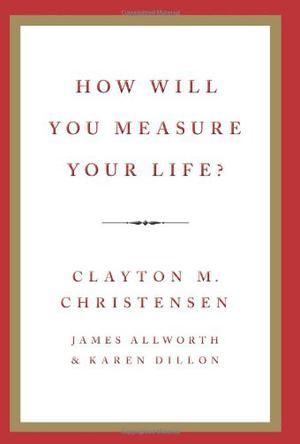
How Will You Measure Your Life?
How do you lead a fulfilling life? That profound question animates this book of inspiration and insight from world-class business strategist and bestselling author of The Innovator's Dilemma, Clayton Christensen. After beating a heart attack, advanced-stage cancer and a stroke in three successive years, the world-renowned innovation expert and author of one of the best selling and most influential business books of all time - The Innovator's Dilemma - Clayton M. Christensen delivered a short but powerful speech to the Harvard Business School graduating class. He presented a set of personal guidelines that have helped him find meaning and happiness in his life - a challenge even the brightest and most motivated of students find daunting. Akin to The Last Lecture in its revelatory perspective following life-altering events, that speech subsequently became a hugely popular article in the Harvard Business Review and is now a groundbreaking book, putting forth a series of questions and models for success that have long been applied in the world of business, but also can be used to find cogent answers to pressing life questions: How can I be sure that I'll find satisfaction in my career? How can I be sure that my relationships with my spouse, my family and my close friends become enduring sources of happiness? How can I avoid compromising my integrity (and stay out of jail)? How Will You Measure Your Life? is a highly original, surprising book from a singular business figure. It's a book sure to inspire and educate readers - companies and individuals, students of business, mid-career professionals, and even parents - the world over. -
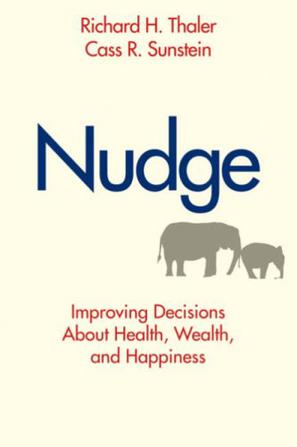
Nudge
Every day, we make decisions on topics ranging from personal investments to schools for our children to the meals we eat to the causes we champion. Unfortunately, we often choose poorly. The reason, the authors explain, is that, being human, we all are susceptible to various biases that can lead us to blunder. Our mistakes make us poorer and less healthy; we often make bad decisions involving education, personal finance, health care, mortgages and credit cards, the family, and even the planet itself. Thaler and Sunstein invite us to enter an alternative world, one that takes our humanness as a given. They show that by knowing how people think, we can design choice environments that make it easier for people to choose what is best for themselves, their families, and their society. Using colorful examples from the most important aspects of life, Thaler and Sunstein demonstrate how thoughtful choice architecture” can be established to nudge us in beneficial directions without restricting freedom of choice. Nudge offers a unique new takefrom neither the left nor the righton many hot-button issues, for individuals and governments alike. This is one of the most engaging and provocative books to come along in many years. (20080518) -
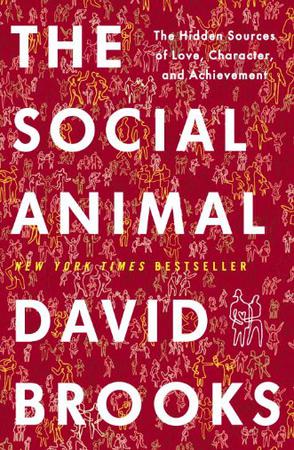
The Social Animal
With unequaled insight and brio, David Brooks, the New York Times columnist and bestselling author of Bobos in Paradise, has long explored and explained the way we live. Now, with the intellectual curiosity and emotional wisdom that make his columns among the most read in the nation, Brooks turns to the building blocks of human flourishing in a multilayered, profoundly illuminating work grounded in everyday life. This is the story of how success happens. It is told through the lives of one composite American couple, Harold and Erica—how they grow, push forward, are pulled back, fail, and succeed. Distilling a vast array of information into these two vividly realized characters, Brooks illustrates a fundamental new understanding of human nature. A scientific revolution has occurred—we have learned more about the human brain in the last thirty years than we had in the previous three thousand. The unconscious mind, it turns out, is most of the mind—not a dark, vestigial place but a creative and enchanted one, where most of the brain's work gets done. This is the realm of emotions, intuitions, biases, longings, genetic predispositions, personality traits, and social norms: the realm where character is formed and where our most important life decisions are made. The natural habitat of The Social Animal. Drawing on a wealth of current research from numerous disciplines, Brooks takes Harold and Erica from infancy to school; from the "odyssey years" that have come to define young adulthood to the high walls of poverty; from the nature of attachment, love, and commitment, to the nature of effective leadership. He reveals the deeply social aspect of our very minds and exposes the bias in modern culture that overemphasizes rationalism, individualism, and IQ. Along the way, he demolishes conventional definitions of success while looking toward a culture based on trust and humility. The Social Animal is a moving and nuanced intellectual adventure, a story of achievement and a defense of progress. Impossible to put down, it is an essential book for our time, one that will have broad social impact and will change the way we see ourselves and the world. -
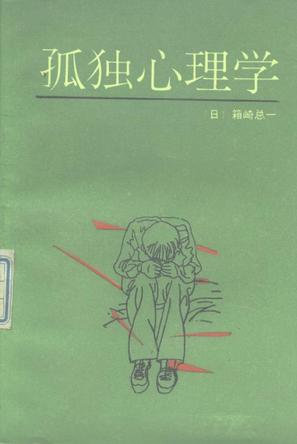
孤独心理学
-
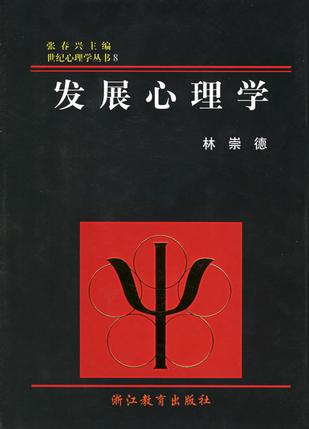
发展心理学
在本书的写作过程中,我把全书十章分为两个部分,前两章是研究发展原理,并评价诸多心理学派关于心理发展规律的理论;后八章则系统地论述个体心理各个发展时期的特征。当然,发展心理学研究发展心理的原理和研究各年龄阶段心理特征是相互交叉的,在本书中,这种思想亦一以贯之。例如,前两章也涉及各年龄阶段心理特征的问题,后八章在讨论每个年龄阶段心理发展的特征时,也作了一定的理论阐述。这样的体例安排,在国际发展心理学界是常见的,而对我来说,却是刻意安排,因为这体现了朱智贤教授和我的学术思想。 在发展心理学研究中,我主张将基础研究和应用研究相结合,理论和实践相结合b在我自己发展心理学的研究生涯中,一方面我从事基础理论的研究,建立了多媒体认知发展实验室,主持十余项各种基础的重大课题,并将研究的成果撰写咸论著,与朱智贤合著的《思维发展心理学》(1986)一书,在国內外学术界获得了一定的声誉;另一方面,我重视申小学教育的应用研 究,将自己的思维发展理论应用于提高教育质量上去,并在全国26个省市建立了实验点,在国內外教育界颇有影响,拙著《学习与发展》(1992)和《教育与发展》(1998),正是这方面成果的结晶。发展心理学的基础研究和应用研究并重,二者缺一不可。 校阅案头上的《发展心理学》书稿清样,使我惑既良多:一介书生无扭转乾坤之功;一个渔家后代无丰衣足食之力;一个学者却应有唤起民众之良知,提高民族素质之责任,展示最佳发展道路之设计。衷心希望拙作在这方面尽力、尽责、尽忠,这也是我的写作初衷之一。 此外,我所以能在东华书局和浙江教育出版社出版《发展心理学》,论述自己对人类心理半生发展的看法,这应该感谢我的良师益友——台湾师范大学张春兴教授。张先生长我十四岁,按国际心理学界的惯例,十至二十年算一代人,张先生是我的师长辈。然而他出于对我的信任,于一九九二年八月与张师母用慧强教授前来大陆,亲自向我约稿,使我十分感动,从此,我俩建立了深厚的忘年交情。多年来,我亲眼看到张先生为《世纪心理学丛书》所付出的心血与艰辛。《世纪心理学丛书》的出版对未来中国心理科学的发展,意义是十分重要的。 -
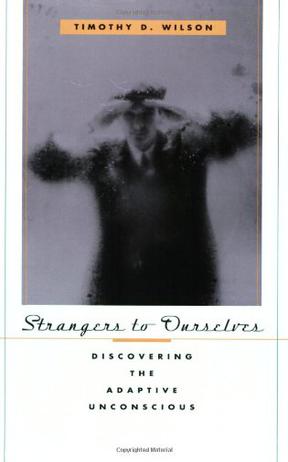
Strangers to Ourselves
"Know thyself," a precept as old as Socrates, is still good advice. But is introspection the best path to self-knowledge? What are we trying to discover, anyway? In an eye-opening tour of the unconscious, as contemporary psychological science has redefined it, Timothy D. Wilson introduces us to a hidden mental world of judgments, feelings, and motives that introspection may never show us.